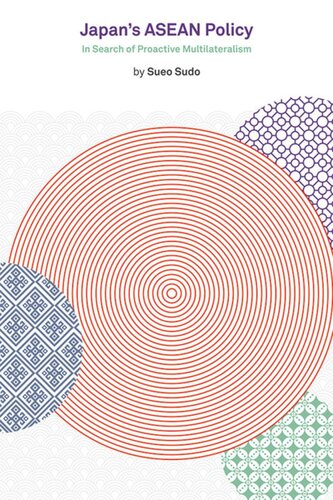

Most ebook files are in PDF format, so you can easily read them using various software such as Foxit Reader or directly on the Google Chrome browser.
Some ebook files are released by publishers in other formats such as .awz, .mobi, .epub, .fb2, etc. You may need to install specific software to read these formats on mobile/PC, such as Calibre.
Please read the tutorial at this link: https://ebookbell.com/faq
We offer FREE conversion to the popular formats you request; however, this may take some time. Therefore, right after payment, please email us, and we will try to provide the service as quickly as possible.
For some exceptional file formats or broken links (if any), please refrain from opening any disputes. Instead, email us first, and we will try to assist within a maximum of 6 hours.
EbookBell Team

5.0
100 reviewsThe central puzzle in the study of Japanese foreign policy has been why Japan has continued to play a passive role in international affairs, despite its impressive economic and political power. Challenging this central puzzle, the core argument of this study is to present an alternative path for the study of Japanese foreign policy. In fact, in recent years Japanese foreign policy has become less dependent on the United States, more strategic towards Asia, and more energetic towards international and regional institutions. One of the main features is multilateralism in Japanese foreign policy, as shown by Japan’s active participation in the regional institutions. In pursuing multilateralism, Japan cooperated closely with the only durable regional body in Southeast Asia, to wit, the Association of Southeast Asian Nations (ASEAN). Given the fact that East Asian regionalism has been driven by ASEAN, it is of utmost urgency to investigate the emerging partnership between Japan and ASEAN. The central thesis of this study is thus to put Japan’s ASEAN policy into a proper perspective by asserting that Japan’s new policy initiatives towards ASEAN are not reactive, nor are they exceptions in a broader framework of merely reactive foreign policy.